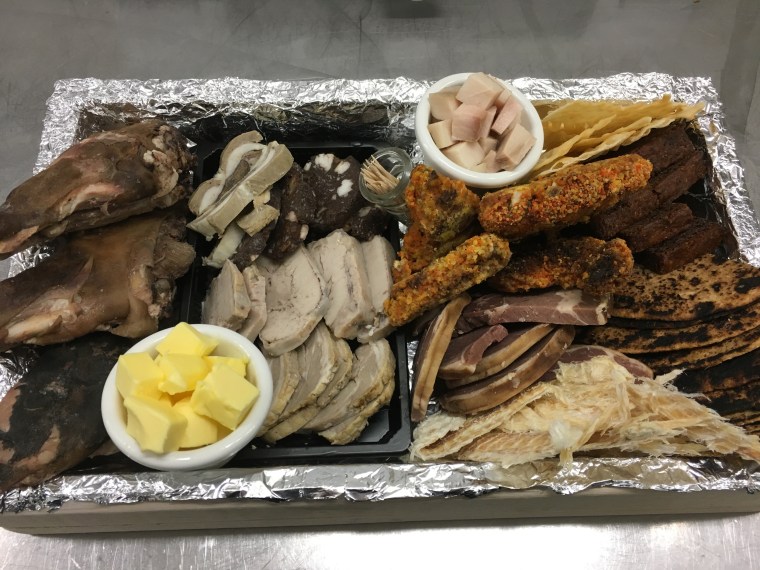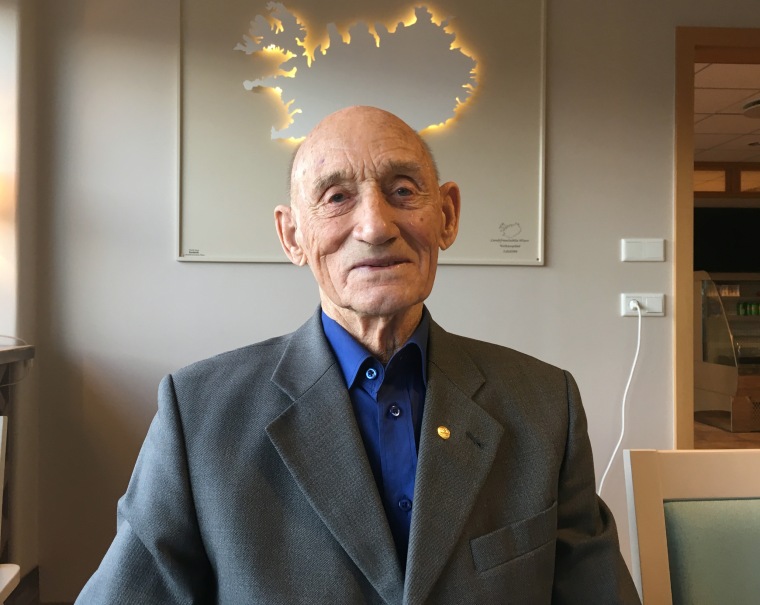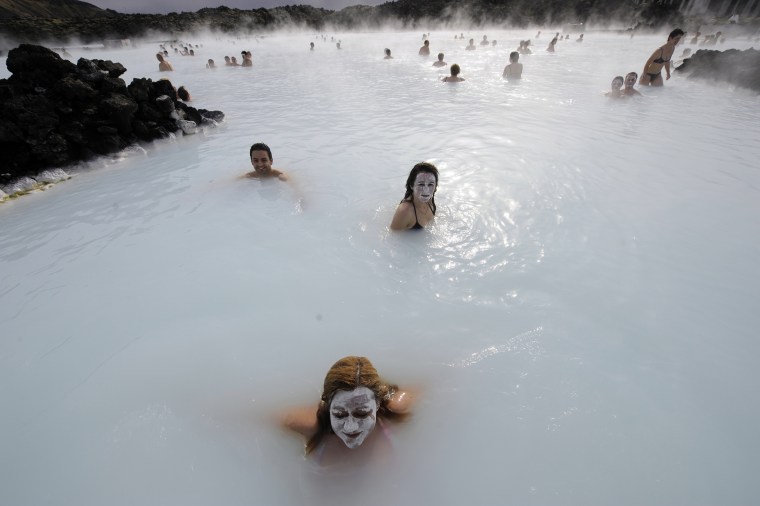Tourists know Iceland for its spectacular landscape, geothermal pools and strange cuisine. But experts say the Nordic nation is special for another reason: people there live longer than almost anywhere else in the world.
Year after year, Iceland is one of the top-ranked countries for life expectancy. Its citizens survive to an average of 83, outlasting the residents of richer, better-educated and warmer corners of the globe.
This doesn't come as a shock to Stefan Thorliefsson, who is six months shy of the century mark and still starts every morning with a swim in the outdoor pool he built himself in 1943 in the fishing village of Neskapstadur.

That's followed by an invigorating workout with other town elders and then a lunch that consists of some of Iceland's unique foods.
The day NBC News visited Thorliefsson, he was snacking on boiled sheep's head (svið) and pickled ram's testicles (hrútspungar), but he said that was an exception.
"We don't eat too much meat. We eat much more fish," he said, tucking into some fermented shark (hákarl).
A fish-heavy diet full of heart-healthy Omega-3 fatty acids has been cited by some as a reason why so many on this glacier-topped island of 320,000 people live well into the golden age.
The home of the Blue Lagoon also has low pollution and an athletic lifestyle. The women's champion of Crossfit is Icelandic, and the country holds eight "World's Strongest Man" titles.
But Kari Stefansson, founder of DeCode Genetics, says the key to Icelandic staying power probably has more to do with Vikings than volcanoes.
"It is probably because of a genetic background," said Stefansson. "I don't think it has anything to do with the environment we live in. I don't think it has anything to do with the clean air, the fresh water, or the fish we eat. I think it has all to do with how we select our parents."
Stefansson said his company — which has collected genetic information on one-third of Iceland's population — investigated the underpinnings of longevity by comparing the genes of those 90 and up to see if they were more related to each other than control groups.
"And indeed they are much more related to each other," he said. "We established that the ability to become 90 years of age was basically genetic."

While many diseases of aging have genetic and environmental components, Stefansson said DNA often plays a role in what kind of environmental risks someone takes.
As an example, he said, researchers have found a genetic variant can influence nicotine dependence. A person with the variant will smoke more and have more trouble quitting than someone who did not inherit the variant.
"Without an environment that we call tobacco smoke, you're not going to develop lung cancer in Iceland," he said. "But you inherit compulsion to seek the environment.
"Your brain is hard-wired by genetics. And it decides in many ways what you do and how you do it. So there's very little free will," Stefansson said.
"There is no God, there is only DNA," he added with a laugh. "There is a lot you can do, but you have to realize you are always battling yourself in everything you do to try to prevent your genetic destiny from becoming a reality."

The harsh conditions of life in Iceland in past centuries — unheated homes, agricultural hardship, widespread poverty — may have mean those with tough genes were more likely to survive, reproduce and pass that hardy DNA down the line, Stefansson said.
"If you look at old people in Iceland, they fall into families," he said. "And these families live in the same clean air, drink the same good water. They eat the same kind of food as the people in families where people die young."
Thorliefsson certainly seems to have those tough genes. Six years ago, he left a retirement community and moved back to his house to resume his old routine of swimming laps in freezing weather and skiing the local mountains.
But when asked for the secret of such a long, healthy life, Thorliefsson hinted that, like Stefansson, he suspects genetics may be the key.
"I have it from my parents," he said.

